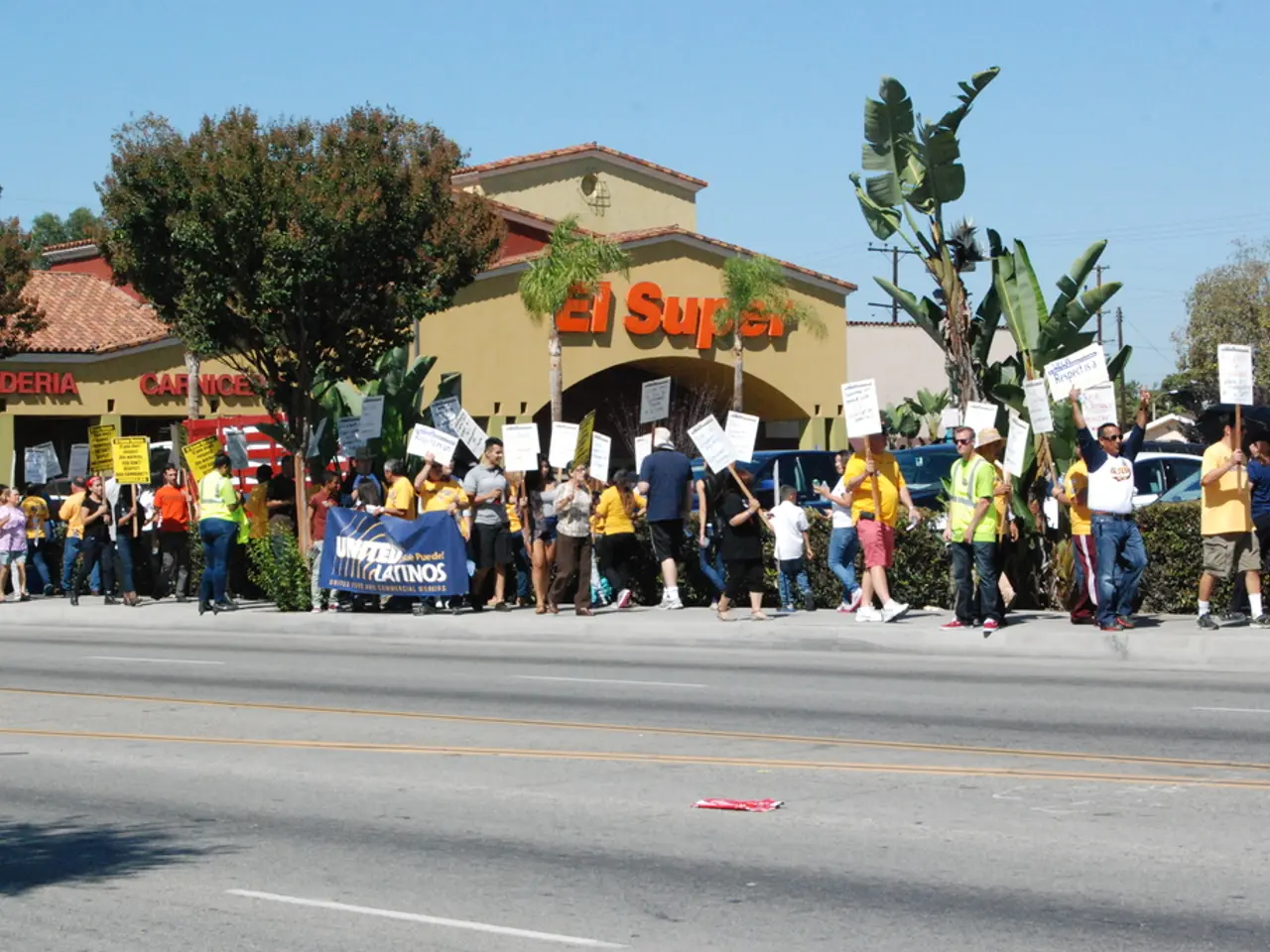Struggle of SPD for downgrading in league standings
In the upcoming municipal elections scheduled for September 14 in North Rhine-Westphalia (NRW), the Social Democratic Party (SPD) is seeking to reclaim its former stronghold, which has been challenged in recent years. One key figure who could play a significant role in this endeavour is Barbel Bas, the SPD chair from Duisburg.
According to a Forsa poll from early July, the CDU, SPD, and Greens are facing losses in the municipal elections, while AfD and The Left are gaining. This trend is particularly noticeable in the Ruhr area, where the SPD managed to hold on in the federal election in February, but the AfD is close behind.
Barbel Bas, who won her own constituency of Duisburg I in February, is seen as a beacon of hope for the SPD in Gelsenkirchen. Known for her effective parliamentary leadership and engagement, Bas is shaking hands, petting dogs, and having beers as part of her campaign trail in the NRW municipal election. Her working-class background, interests in football, crime novels, and Ruhrpott beer, make her the prototypical Social Democrat.
The SPD is fighting to maintain their former stronghold in NRW, and it's a relegation battle as they are beaten where they were once unbeatable. Dirk Wiese, manager of the Bundestag faction, believes the SPD is strongly present and deeply rooted in the region in NRW, citing examples of down-to-earth and pragmatic candidates like Frank Dudda, Sören Link, Andrea Henze, Ralf Paul Bittner, and Nicole Reschke.
Wiese asserts that the AfD is not interested in the challenges faced by workers and is more like the wolf in sheep's clothing, only having the interests of big capital in mind. The SPD's stance on leaving the pension untouched and having civil servants pay in is popular in NRW despite criticism from experts.
Political scientist Norbert Kersting from the University of Münster considers it unlikely that an AfD politician could move into a larger town hall in NRW due to the existing firewall of parties that rigorously distance themselves from the AfD. Around 13.7 million people are eligible to vote statewide in NRW.
The municipal elections in NRW are considered a major political mood test since the federal election in February. The SPD could end up with 22 percent statewide, which is significantly better than their recent performance at the federal level, but still sobering for NRW. The SPD's performance in these elections could indicate the party's ability to reconnect with voters and rebuild its political strength.
In this context, the SPD’s electoral setbacks in NRW suggest a strategic value in cultivating politicians with Barbel Bas’s leadership style—those who can help revitalize the party, engage voters effectively, and shape a progressive future trajectory. Such candidates could be pivotal in reversing recent declines and positioning the SPD as a competitive force nationally and locally.
- Economic and social policy debates are increasingly relevant in the context of the upcoming municipal elections in North Rhine-Westphalia (NRW), as the SPD aims to address issues such as migration and war-and-conflicts through policy-and-legislation.
- The general-news landscape in NRW is rapidly changing amidst the CDU, SPD, and Greens losing ground to AfD and The Left, particularly in the Ruhr area where football, crime-and-justice, and the premium European leagues (like the premier-league) are topics of conversation.
- As part of the SPD's strategy to reclaim their stronghold in NRW, candidates like Barbel Bas—whose interests align with working-class values and include pastimes like football, crime novels, and Ruhrpott beer—are playing key roles in shaping the party's image and connecting with voters.
- The politics of the municipal elections in NRW are noteworthy, as the SPD's performance in these elections could serve as a bellwether for the party's ability to reconnect with voters and rebuild its political strength at both the national and regional level.
- Given the AfD's stance on issues that affect the working class, political scientist Norbert Kersting from the University of Münster suggests that the existence of strong, effective candidates like Barbel Bas—who can effectively engage voters and lead the SPD towards a progressive future—is crucial for reversing the party's current declines and positioning itself competitively in the political landscape.








